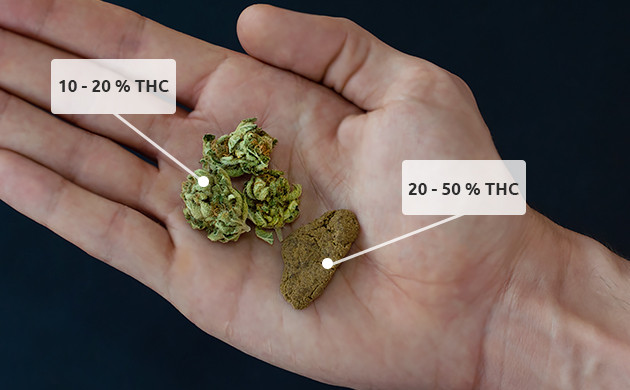
Neuroplasticity and Cannabis: How THC May Rewire Learning Pathways
The human brain is not a static organ. It has the remarkable ability to adapt, reorganize, and form new connections
FREE SHIPPING ON ORDERS OVER $99 | 10 points = $1
With the rise of natural wellness trends, functional mushrooms have made a strong entry into the mainstream. You can now find them in everything from coffee blends and capsules to chocolates and skincare. But despite their growing popularity, many people still have questions like: Are functional mushrooms legal? Are they actually safe to consume?
The short answer is: Yes, most functional mushrooms are legal and safe — but understanding the details can help you make informed decisions about using them as part of your wellness routine.
Functional mushrooms, also known as medicinal or adaptogenic mushrooms, are a group of fungi used to support health and wellness. Unlike psychedelic mushrooms (which contain psilocybin), functional mushrooms are non-psychoactive, meaning they won’t alter your mental state or produce hallucinations.
Some of the most well-known functional mushrooms include:
These mushrooms have a long history of traditional use in Eastern medicine and are now supported by modern research highlighting their potential health benefits.
Yes, functional mushrooms are fully legal in the U.S. and Canada. They are commonly sold as dietary supplements and are regulated similarly to other natural products like vitamins, herbs, and adaptogens.
They are not classified as drugs, and you can find them in health stores, online, and even in some cafes. Popular products include mushroom powders, capsules, tinctures, teas, and mushroom-infused coffees or chocolates.
However, it’s important to distinguish them from psychedelic or hallucinogenic mushrooms, which contain psilocybin. Psilocybin is a Schedule I controlled substance in the U.S. and remains illegal in many countries unless used in clinical or research settings.
In most European countries and Australia, functional mushrooms are also legal when sold as food supplements. However, some regions may have specific regulations around health claims or dosage labeling, so manufacturers must comply with local laws.
Always check the label and local import guidelines if you’re buying from an international seller.
For the vast majority of people, functional mushrooms are safe when used appropriately. They have been consumed for centuries in traditional medicine with very few reports of side effects. Here’s why they’re considered safe:
Functional mushrooms do not contain addictive substances or compounds that produce intoxication. They work gradually and gently in the body, helping to balance stress, support the immune system, and promote overall wellness.
Many mushrooms like Reishi, Shiitake, and Maitake have GRAS status in the U.S. — meaning they’re Generally Recognized as Safe by the FDA for use in foods and supplements.
Reishi, for example, has been used for over 2,000 years in Traditional Chinese Medicine. Lion’s Mane is also consumed as a food and has clinical studies supporting its effects on nerve health and cognitive function. Cordyceps is used by athletes to support stamina and energy.
While functional mushrooms are safe for most people, some individuals should consult a healthcare provider before use:
Additionally, it’s essential to follow recommended dosages and avoid self-medicating for serious health conditions without professional guidance.
Not all mushroom supplements are created equal. To ensure both legality and safety, keep the following in mind:
Choose companies that are transparent about their sourcing, processing methods, and lab testing. Look for third-party testing to verify purity, potency, and the absence of contaminants like heavy metals or mold.
Many quality supplements use the fruiting body (the actual mushroom), which is richer in active compounds like beta-glucans. Some cheaper products contain mostly mycelium grown on grain, which may have lower potency.
Brands that claim their mushrooms can “cure cancer” or “instantly fix depression” are not following FDA or global health regulations. Stick with products that promote wellness support rather than miracle cures.
If purchasing from abroad, double-check the import rules in your country regarding natural supplements and herbal products to avoid issues with customs or legal compliance.
Functional mushrooms are both legal and safe in most parts of the world when used responsibly. Backed by centuries of traditional use and modern research, these mushrooms offer gentle yet powerful support for stress, immunity, energy, and mental clarity.
The key to reaping their benefits lies in choosing high-quality, properly labeled supplements and understanding the difference between functional and psychedelic varieties. If you’re starting a mushroom supplement routine for the first time, it’s always smart to consult your healthcare provider — especially if you’re on medication or managing a health condition.
Nature’s pharmacy is full of potent remedies, and functional mushrooms are a prime example — offering wellness without the side effects of synthetic alternatives.

The human brain is not a static organ. It has the remarkable ability to adapt, reorganize, and form new connections

In our fast-paced world, many people accumulate what’s known as sleep debt—a deficit that builds when you consistently sleep fewer